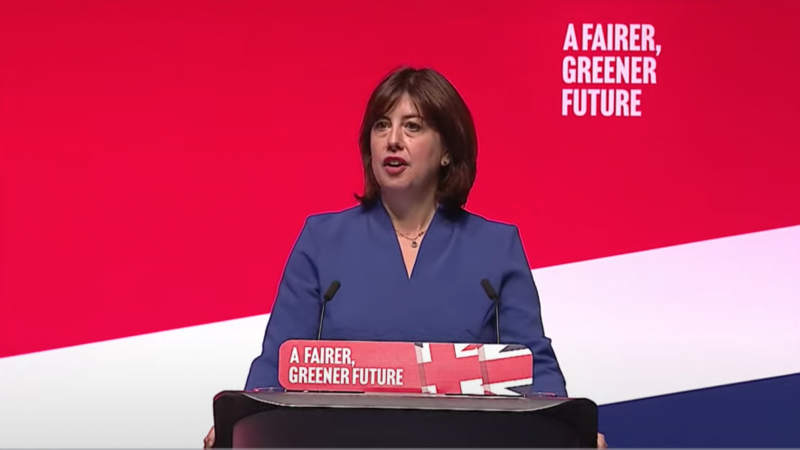
Labour’s Lucy Powell has declared that internet access is a “necessity not a luxury” after the party set out a plan to address the increasing cost of broadband amid the ongoing cost-of-living crisis.
The opposition party today announced its three-point plan to respond to rising broadband bills, which the Shadow Culture Secretary said would “ease the broadband bombshell facing families and firms”.
According to media regulator Ofcom, nearly a third of households are struggling to pay for their broadband, phone and streaming bills, double the figure reported last year and the highest since records began.
Powell said: “Internet access is a necessity not a luxury, yet the economic crisis made in Downing Street is making it increasingly difficult for families to make ends meet and stay connected.
“Our three-point plan will ease the broadband bombshell facing families and firms, at a time when they are already facing eye-watering energy bills, and mortgage and rent increases.
“Whilst the Conservatives crash our economy, Labour will ensure accessing and connecting to digital infrastructure powers growth across our economy to ensure people and places aren’t left behind.”
Broadband firms may receive a windfall of as much as £1.7bn next year if they introduce the above inflation annual price increases usually seen in the sector. Many of the UK’s main internet providers increase the cost of bills annually using the consumer prices index (CPI) rate of inflation in January plus 3.9%.
Labour is urging the government to reverse the changes introduced in 2019 that allowed regulated wholesale prices to rise with CPI rather than costs to prevent firms from receiving a windfall while consumers struggle to pay their bills.
Wholesale prices for 2023 will be set in October. According to Bloomberg, broadband costs may jump by more than 25% if current inflation forecasts prove correct.
As part of its plan, Labour is calling on Ofcom to investigate and take action to strengthen consumer protections, including by addressing mid-contract price rises, early termination costs for social tariff customers and loyalty penalties which result in long-term customers paying more than new customers.
Labour is also demanding an industry-wide social tariff for low income families. It is urging wholesalers like Openreach to work with Ofcom and consumer groups to develop a social tariff that is “mandatory” and “well-advertised”. If they fail to do so, Labour said it will set and legislate for such a tariff in government.
Powell promised a “new settlement for the digital age” in her speech to Labour conference last month. She told delegates that Labour will ensure that the UK has “world-leading digital infrastructure” and that the country takes a lead in the race on industrial 5G.
“The choice is clear – unlock the power of the digital revolution in the interests of the many, or continue to benefit a small few. Conference, together we’ll ensure a Labour government delivers on that mission,” the Labour frontbencher declared.
In its 2019 general election manifesto, Labour pledged to deliver full-fibre broadband “free to everybody in every home” by 2030. As part of the plans, the party said it would establish a new ‘British Broadband’ public entity and bring parts of BT into public ownership.
The party estimated that the initial roll-out of the network would cost more than £20bn, in addition to the cost of taking ownership and ongoing maintenance.




More from LabourList
‘Labour council candidates – it’s tough, but all is not lost’
‘Labour won’t stop the far right by changing leaders — only by proving what the left can deliver’
‘Cutting Welsh university funding would be economic vandalism, not reform’